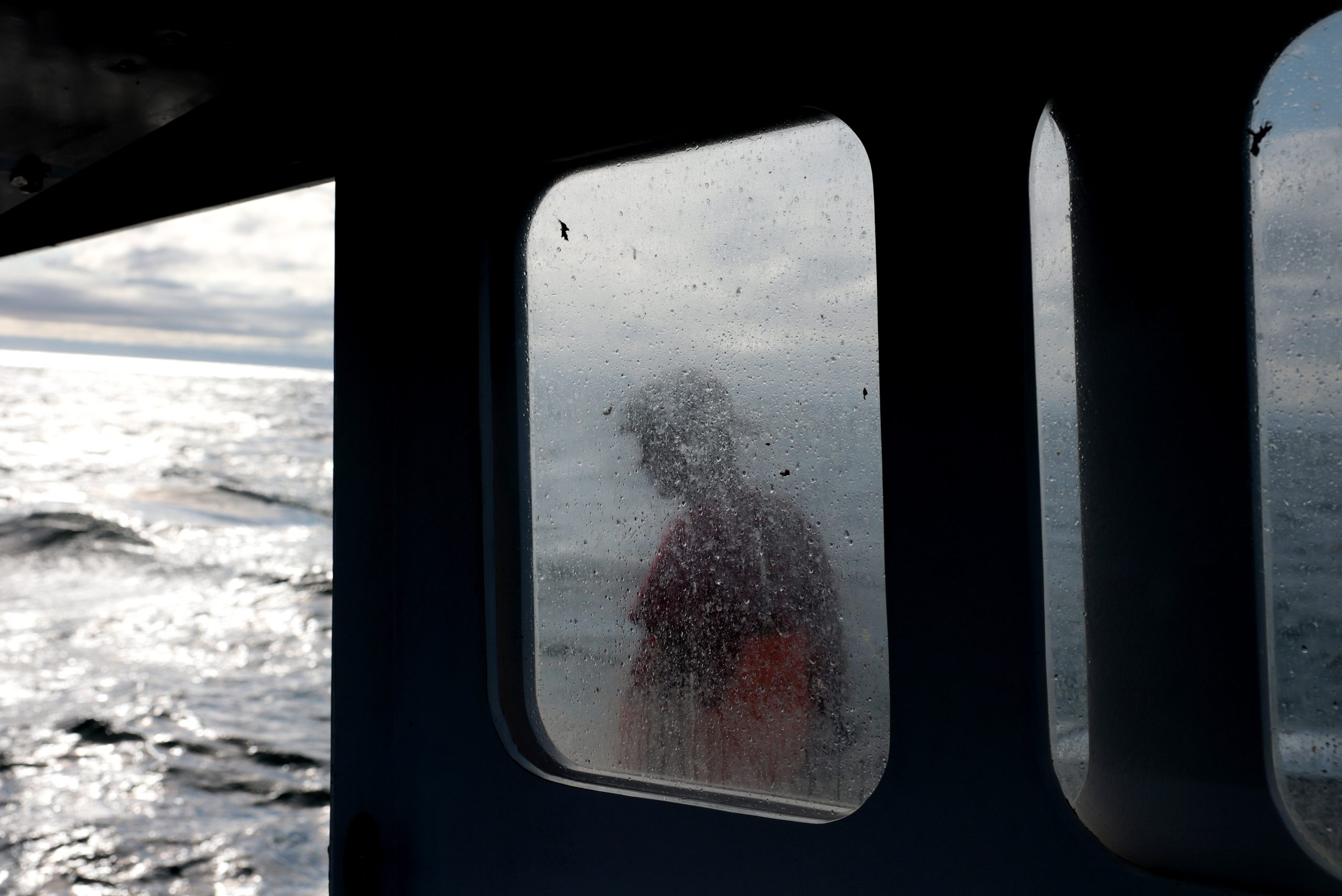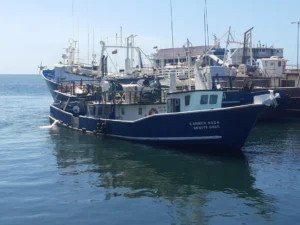
A footballer turned fisher in the Pacific and a determined daughter with a small boat in Barcelona share a passion for fishing, a sector facing a demographic crisis.
Unai Ruiz-Zeberio Almandoz, 25, sends a voice note from a fishing boat in the Pacific Ocean, revealing the fluid nature of their journey. “We never take the same route. We always follow the fish. If the fish go north, we go north,” he notes. The former goalkeeper from Donostia-San Sebastián, Spain, traded his football career in the country’s second division for a life at sea after a knee injury compelled him to seek a new path.
After spending four months aboard to obtain his deep-sea fishing captain’s license, he plans to return home briefly before resuming his training for another four months. “I embarked in Ecuador, and now we’re heading west, off French Polynesia, south of Hawaii, to an island-country called Kiribati,” he explains.
The fishing profession is aging rapidly; EU data reveals that approximately 70% of fishers in countries like Italy and Greece are over 40 years old. The European Commission vows a “generational renewal strategy” is in place for 2027 to address this challenge. Yet, Unai finds some positives in life at sea.
“We each have our own cabin, a chef cooks for us, we have our clothes cleaned, and we can shower every day,” he shares, despite acknowledging the loneliness of missing loved ones. When not fishing for tuna, Unai assists with safety on board and manages night watch duties. “It’s a decent job, like any other, and the wage is good,” he asserts.
However, he recognizes the difficulties of attracting youth to the fishing sector, especially in smaller, inshore operations that present harsher conditions and lesser prospects for generational continuity. “In inshore fishing, you can be awake for 20 hours. In deep-sea fishing, you spend much more time away from home. But then, in my case, I take more rest,” he clarifies.
We are what we eat
Alba Aguilera Olivencia, 24, embodies the struggles of small-scale fishing firsthand. “We set the nets before the sun goes down and raise them when night falls. So we sleep on the boat. We haul in the nets, catch the fish, sell it at the market, set the nets again… and so on,” she explains.
This routine yields uncertain and often minimal financial returns. “After working all day, you can make 50, 100, 200 euros, or nothing. You don’t know. It’s like a roulette; you don’t know where the ball will land. The sea gives you whatever it wants to give you,” she laments.
As a fourth-generation fisher, Alba’s connection to the sea runs deep. “My mother was a truck driver at the port of Barcelona, the only female. My father was a fisher. I was their first child, and it was difficult for them because they both worked nights,” she recalls. Despite her father’s reservations about the precarious nature of fishing, Alba eventually took up the family tradition after exploring other career paths.
Now regarded as the youngest shipowner in Catalonia, she questions the potential for generational renewal in the industry. “Whatever port I go to, I am the youngest, both among men and women, so generational renewal? I am the last one,” she asserts, facing misunderstandings from her friends who deem her choice of profession as unusual.
Alba grows frustrated when discussing the challenges small-scale fisheries encounter. She criticizes both Madrid and Brussels for imposing stringent regulations that hinder small boats while favoring industrial-scale operations. Her disappointment is palpable as consumers opt for fish imported from distant waters instead of local catches. “We’re all going to end up eating salmon. And I swear I’ll die without trying it,” she proclaims.
When challenged about her bold statement, she responds with conviction. “In the Mediterranean, if you have a refined palate, you can enjoy sand eel, solenette, parrotfish, turbot, European lobster, spiny lobster, and red prawn. And for a simpler palate, there is forkbeard, my favorite, monkfish, sardine, and blue whiting…” Her frustrations are evident as she reinforces her disdain for opting for salmon.
“Do you really think I’m going to eat salmon?” she laughs.
(adm, jp)










